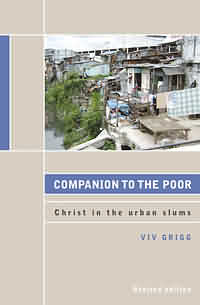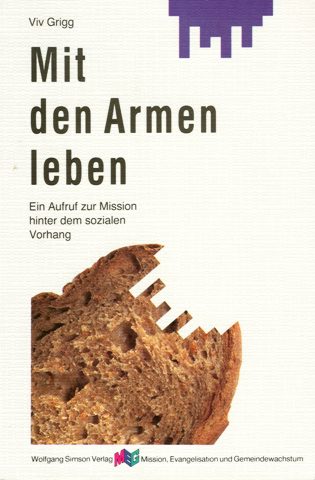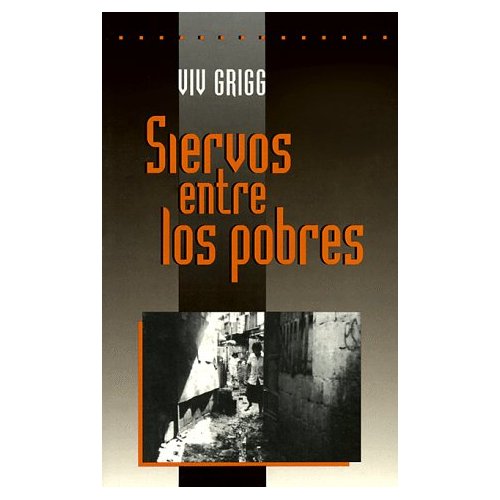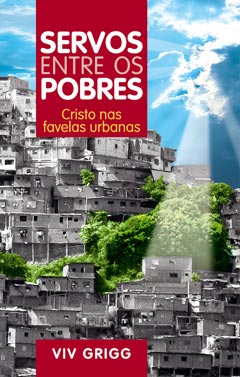
Urban Leadership Foundation
A hub for leadership training in cities and among the world's 1.4 billion slum-dwellers
 The story of years entering and pioneering the first church in Manila's slums is used as a basis for defining theological and praxis paradigms for urban poor churchplanting, and community transformation...
The story of years entering and pioneering the first church in Manila's slums is used as a basis for defining theological and praxis paradigms for urban poor churchplanting, and community transformation...
It was republished in Portuguese (1988) and later Spanish (1994) and disseminated to 5,000 Latin leaders at COMIBAM, the first major missions conference in Latin America. Its theology to this day is used as an evangelical answer to Liberation theology. In 1993,4,5 messages to groups of 5,000 and 10,000 students in Korea, involved publication in Korean (1995). It was later published in Tamil and German.
 The story is used as a basis for defining theological and praxis paradigms for urban poor churchplanting, and community transformation.
The story is used as a basis for defining theological and praxis paradigms for urban poor churchplanting, and community transformation.
It was written at the turning point of evangelical theology globally as it moved from insular non-engagement in social issues to embracing transformation.
At that point we had no popular evangelical theology useful for engaging with the urban poor of the global slums (though some for the English urban poor). So the story is story of a struggle to break out of an evangelical jacket into a evangelical and Biblical worldview for transformation that prioritizes proclamation, but demonstrates holisitc discipleship...
 The sources are derived from the struggle of that time as the Philippines moved as culture into a commitment to development. Studying under Filipino experts in development was seminal to reflections. Facing the possiblity daily of "being disappeared" by President Marcos' henchmen meant justice issues were poignant.
The sources are derived from the struggle of that time as the Philippines moved as culture into a commitment to development. Studying under Filipino experts in development was seminal to reflections. Facing the possiblity daily of "being disappeared" by President Marcos' henchmen meant justice issues were poignant.
Years of reading on church growth gave some frameworks, but the lessons were mostly learned from action and reflection on the scriptures in situ. This was the fifth ministry Viv had begun by the age of 31, so there was some background experience to draw from, but still enough inexperince so that every step was a learning process, meaning writing was fresh. ...
Sources
 The story is at times used as an example of ethnographic research meshed with theological integration. Years living in the Manila slums and writing each day (what some call ethnographic journaling) the stories and the theological reflections gave a host of materials. Then being back in New Zealand in 1981 enabled a season of productive writing, while living in a forest, with 70 ladies praying....
The story is at times used as an example of ethnographic research meshed with theological integration. Years living in the Manila slums and writing each day (what some call ethnographic journaling) the stories and the theological reflections gave a host of materials. Then being back in New Zealand in 1981 enabled a season of productive writing, while living in a forest, with 70 ladies praying....
Because it is stories, it captivates the readers with the complex issues of the slums, yet each story is followed by a moral or by social analysis or by a theological response, thus people are carried along into a development of a theology. this is a Jesus-style way of doing theology that has marked all my works.
This theology has set many workers free. There are many stories of workers going out to begin new works in the slums based on this book, particulary the Portuguese version in Brazil.
This and a subsequent book, Cry of the Urban Poor, which extends its story to stories form 12 cities, to this day remain the only significant books on church-planting in the urban slums.
After four editions and almost yearly republication in English, then translation into six languges, it has impacted thousands of missionaries and workers across the world, providing them with a theology and praxis for holistic church-planting.
In Brazil, it was used and is used today as a biblical answer to liberation theology that enables workers to engage with the poor yet remain true ot the scriptures.
As it was written in a simple yet academic way, many seminaries have utilized it in church growth and development courses.
Viv says, "It is humbling to arrive in a church or city and have someone pull one aside, your book changed my life! and hear a story of a new ministry formed, a church started through hospitality to a group of poor people, a pastor leaving their 3000-member church to go live in a quarry and hence start a mission for justice...
